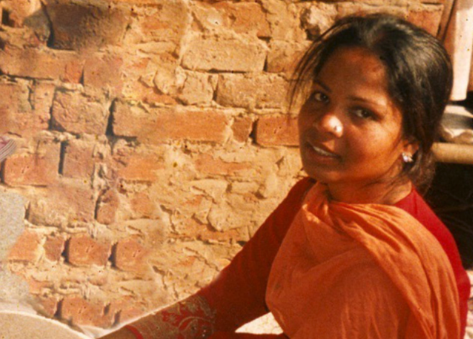A Pakistani Christian woman who was acquitted of blasphemy after spending eight years on death row has finally been freed from Multan prison, according to a statement given by her lawyers.
Meanwhile, some reports say that the woman in question, Asia Bibi, has boarded a plane but its destination was not known.
Things have not been flowing as smoothly as Asia would have liked. For starters, Pakistan being an Islamic country holds a big part.
Supreme Court ruling sparked protests from Islamists and the government had said it would bar her from leaving Pakistan.
In a statement given by her husband, He said that they were in danger while pleading for sanctuary.
The Case
Also known as Asia Noreen, Asia Bibi was convicted in 2010 of insulting the Prophet Muhammad during a row with neighbors.
The Pakistani government has stated that it will start legal proceedings to prevent her from going abroad after agreeing on the measure to end the violent protests.
As a result of her act, many of the protesters were hardliners and held a strong support against blasphemy laws that have called for Asia Bibi to be hanged.
One Islamist leader said all three Supreme Court judges also "deserved to be killed".
According to a spokesman for the hardline Tehreek-e-Labaik Party (TLP), Asia Bibi's release was in the breach of their deal with the government.
"The rulers have showed their dishonesty," TLP spokesman Ejaz Ashrafi told Reuters.
The deal also saw how officials agree not to block a petition for the Supreme Court to evaluate Asia Bibi's acquittal in the light of Islamic Sharia law.
The Arguments
The trial roots from an argument Asia Bibi had with a group of women in June of 2009.
They were harvesting fruit when a row broke out about a bucket of water. The women said that because she had used a cup, they could no longer touch it, as her faith had made it unclean.
Prosecutors alleged that in the commotion which followed, the women said Asia Bibi should convert to Islam and that she made offensive comments about the Prophet Muhammad in response.
She was later beaten up at her home, during which her accusers say she confessed to blasphemy. She was arrested after a police investigation.
After her acquittal, the Supreme Court said that the case was based on unreliable evidence and her confession was delivered in front of a crowd "threatening to kill her".
Why is this case so troublesome?
Given the fact that Islam is Pakistan's national religion and underpins its legal system. Public support for the strict blasphemy laws is extremely strong.
Hard-line politicians have often backed severe punishments, partly as a way of shoring up their support base.
However, critics say the laws have often been used to exact revenge after personal disputes, and that convictions are based on thin evidence.
The vast majority of those convicted are Muslims or members of the Ahmadi community, but since the 1990s scores of Christians have been convicted. They make up just 1.6% of the population.
The Christian community has been targeted by numerous attacks in recent years, leaving many feeling vulnerable to a climate of intolerance.
Since 1990, at least 65 people have reportedly been killed in Pakistan over claims of blasphemy.








